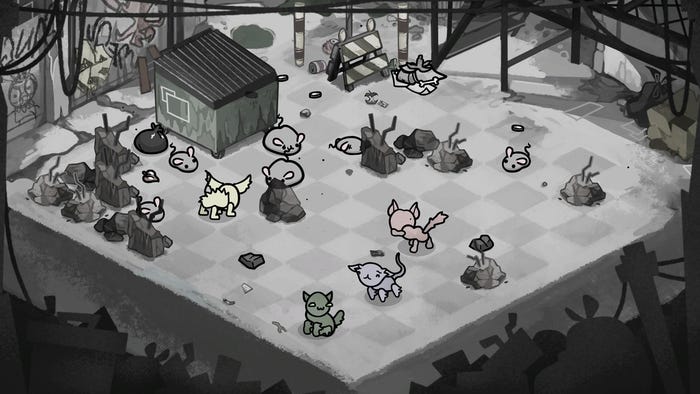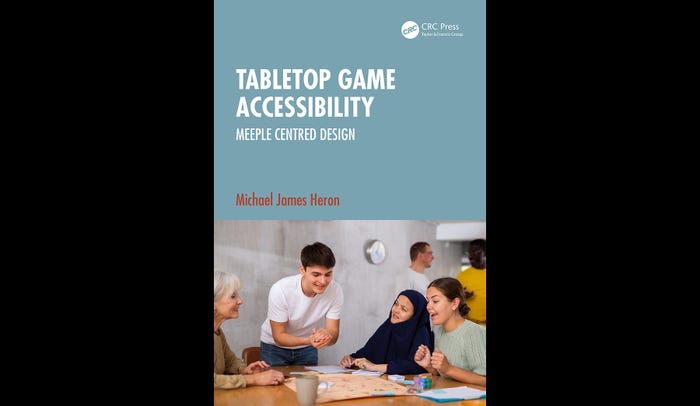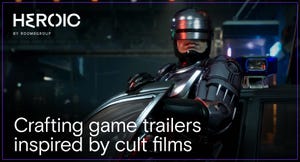I'm tired of arguing about Climate Change so I'm giving away a game about it!
I've decided the best thing I can do about this issue, besides the personal and political stuff is to apply my decades of game design experience to a climate-apocalypse game (there are enough zombie games anyway).

The Why:.
I’ve always believed that games can have social value. Chris Crawford’s 1985 classic game of geopolitical brinkmanship, “Balance of Power”, showed the futility of nuclear war. There are other examples, the 1997 PlayStation game, “Oddworld: Abe’s Oddysee” covered the exploitation of workers in a moving way:
The game centers on the titular Abe, a meek Mudokon slave at the RuptureFarms meat processing factory. When he discovers that he and his fellow Mudokons are to be slaughtered, Abe decides to escape and liberate as many enslaved Mudokons as he can. The player assumes the role of Abe as he attempts a perilous quest to emancipate his downtrodden people.
For me the example that best represents a creative effort that moved me to tears is the 1959 film, “On The Beach”.
As we see at point-blank range, and frequently in intense, emotional close-ups, the survivors wish for more time. They wish for a future. They desire a happy ending. They just want hope. But the movie’s most effective and impressive point — pushed quietly if deftly — is that all those wishes died when the bombs fell. The time for good wishes would have been before man set about to annihilate his brothers.
“On The Beach” scared me and I’m sure many other “cold war” children (and adults). The ending scene of the film shows a deserted world with banners expressing futile hope in a dramatic image.

On The Beach — Closing Scene
I want to invoke the same feelings about our ever more likely Climate Apocalypse as “On The Beach” did for nuclear war. As the scientist in that film says:
“Who would ever have believed that human beings would be stupid enough to blow themselves off the face of the Earth?”
I simply can’t believe we’re stupid enough to cook ourselves off the face of the Earth. If I achieved 1/10th of the emotional impact of “Oddworld” or “On The Beach” I would be happy with the effort.
The Inspiration:

Scene from “The Climate Trail” game
Reading this story is what sparked the idea of creating The Climate Trail:
A Full Life
A SCIENCE-FICTION STORY ABOUT AMERICA IN THE AGE OF CLIMATE CHANGE.
By the time Rue reached 15 she had begun to measure her life by her many moves, the parchment of her life torn into fragments, each one reducing the integrity of the whole. Each small leaf then folded. Folded and shaped until it became surreal origami. Tear here. Fold there. This part became a house, burning down. Tear here, fold again. This shred became a rusty diesel truck, driving south. Tear again. Fold. This bit became an apartment building, without a roof.
Tear here. Tear again. Make a casket.
The story is powerful and it got me thinking, am I doing ANY good by spending time rebutting climate deniers on Facebook et. al.? Is there a way of showing people how bad this could be, what a 4ºC warmed world (or worse) could end up like?
So for the first time in well over a decade, I find myself directly working on a game. I felt it would be a proactive way of dealing with my frustrations about our inaction on climate.
So why “Oregon Trail”?
Climate Refugees are a theme of the story (“A Full Life”) that inspired me to create “The Climate Trail”.” Even today we have climate refugees escaping harsh conditions for the promise of a better life. For example this story:
‘Food Doesn’t Grow Here Anymore. That’s Why I Would Send My Son North.’
A stark choice for some Guatemalans: watch crops wither, and maybe die with them, or migrate.
So when I read about the travels of Rue in “A Full Life” and stories about climate refugees the idea of traveling to a better place seemed like a natural for game play.
From 1994 to 1999 I worked at an amazing company known as The Lightspan Partnership, helping to create educational ‘adventures’ for the K-6 grade segments, games that eventually were launched on the Sony Playstation. I worked with some of the best people I’ve ever known and got to talk to educators and educational game designers all over the USA.
One of the companies I got to visit was the Minnesota Educational Computing Consortium (MECC). MECC is best know as the publisher of “The Oregon Trail..” In “The Oregon Trail” the player assumes the role of a wagon leader guiding a party of settlers from Independence, Missouri, to Oregon’s Willamette Valley via a covered wagon in 1848.
 One of the versions of “The Oregon Trail”’s title screens.
One of the versions of “The Oregon Trail”’s title screens.
A bit of history about this game:
On December 3rd, 1971, the original version of the game was released on the HP 2100 system by developers Don Rawitsch, Bill Heinemann and Paul Dillenberger as an educational tool to teach children about the experiences of 19th-century pioneers. In 1948, the Minnesota Educational Computing Consortium (MECC) hired Rawitsch to rebuild the game with events and player choices while traveling the trail. Subsequent versions of the game were released on CDC Cyber, Apple II, Atari 8-Bit, DOS, Macintosh and Windows computer systems..
Over the years 65 million copies of the Oregon Trail have been sold.
However, I don’t intend to just create a “post-climate apocalypse” version of the same game.
The Game’s The Thing Wherein I’ll Catch The Conscience Of My Kin ….
Hamlet:
I’ll have grounds
More relative than this — the play’s the thing
Wherein I’ll catch the conscience of the King.
Crafting “The Climate Trail” has been a great experience. There’s the challenge of learning a new development system (Ren’Py) and programming language (Python), the design challenge of making a playable and challenging game, and the fun of reconnecting with people I’ve worked with over the years.
Modeling a post climate apocalyptic journey, figuring out a realistic scenario without using the tired survivalist tropes we’ve seen in film and video games (sorry, no shooting in this one), is equally challenging.
But there’s a dark side to this. As I work on the mundane stuff (Example: how do we add dysentery to the game in a realistic way?) I’m also paying a lot more attention to the science of Climate Change and frankly it can be downright depressing. Here’s just a sampling:
(note: aerobic means literally everything on land including plants, bacteria, and also us.)
“The Greenland Ice Sheet is in the throes of one of its greatest melting events ever recorded”
I’m not saying all the worst-case scenarios will happen (in the case of the anaerobic ocean, it takes a while), but even if there was a 10% chance of any of this one would ask themselves … “would I get on a airliner that had a 10% chance of crashing?”
So it motivates me to make the gameplay and most importantly the visual novel aspects of this game as awesome as I can craft them. The character interactions have to make you care about the people you’re traveling with, the ones you encounter and the stories they have to tell. I’m applying what worked in a few moments in “The Return to Zork,” the waif as an example.
If a party member dies I want to player to think about their future and the future of our children. Trite as that sounds, it is what motivates me.
I believe games can make a difference.
Updates here: TheClimateTrail
Read more about:
BlogsAbout the Author(s)
You May Also Like









.png?width=300&auto=webp&quality=80&disable=upscale)



